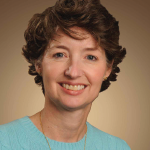
© Jirsak / shutterstock.com
Medical society membership can afford physicians excellent educational and professional development opportunities, along with camaraderie and support in a field that often experiences high rates of burnout. Going for leadership roles in these societies can take member benefits to the next level and give you a seat at the table when it comes to shaping the future of healthcare policy.
“To provide great service to your community, you need your specialty to be great,” said Wendy Stern, MD, an otolaryngologist in private practice in North Dartmouth, Mass. “This means you need to be engaged in more than everyday matters.”
Interested in rising through the ranks from member to medical society leader? Here’s how to do it, and information on what makes the extra responsibilities so worthwhile.
Don’t Be Intimidated
Medical societies can be complex organizations, but don’t let that scare you off. Pediatric otolaryngologist Danny Chelius, MD, former chair of the AAO–HNS section for Residents and Fellows-in-Training and an assistant professor of Pediatric Otolaryngology–Head and Neck Surgery at Baylor College of Medicine in Houston, said it’s crucial to step forward and volunteer because you won’t understand and learn about the society until you’re in the midst of doing the work. “That’s where you understand what the opportunities are to make the biggest impact,” he said, “so don’t be scared to take a leap and step forward into the society.”
Choose Wisely
Everyone’s time is limited, so choosing to be on committees that matter most to you is important because responsibilities can often snowball. And, if you do take on a role, give it your all; not only are your colleagues counting on you, but also, the more you put in, the more you’ll get out.
“If you believe something is important, then volunteering will actually wind up being an amazing educational opportunity,” Dr. Chelius said. “It was through volunteering for leadership roles in the Academy that I learned about the breadth and opportunities of the [organization], and that led me to be able to be more targeted and focused in the things that are most important to me and the ways that I can make an impact.”
On the other hand, if you’re asked to take on something that doesn’t appeal to you, make sure to be gracious about thanking those who chose you and explain your reason for declining. Explain that while the time isn’t right for you at the moment, you’re open to future opportunities. And if you do decline, don’t leave it at that. “Always suggest someone else,” said Samantha Anne, MD, a pediatric otologist at the Cleveland Clinic, secretary of the BOG for the AAO–HNS, and past chair of the AAO–HNS Young Physicians Section. “You’re making it easier for them this way.”
Give It Your All
When she decided she wanted to become more involved in the AAO–HNS, Dr. Anne pushed herself to speak with the chair of the Young Physicians Section and ask what she could do to help out. The chair asked her to write an article about young physician-related material. She gave it her all. The chair later said he had given her something difficult and was impressed with how she handled it, so he continued to involve her in the section. The following year, he asked her to chair that section. And, last year, she was asked to run for secretary of the BOG. “Initially, my reaction was, ‘ME?’” she said. Later, she realized she had proven herself with each task she was given, and members recognized and appreciated her follow-through.
Speak Up
When you volunteer for a committee and you’re brand new, you may be tempted to sit back and listen for the first few meetings, but don’t let it go much beyond that. “It’s easy to be quiet because you’re the young person or the inexperienced person or the quiet person,” said Dr. Anne, who said she understands the temptation to let everyone else do the talking. “But people take notice when you speak up and have something to say, so fight that urge to be quiet because you may feel you don’t belong in the room. It is important for people to hear your voice. You bring something new to the table.”
This is especially true for young leaders and underrepresented minorities. “What you experience as a woman or an underrepresented minority is not the same thing someone else experiences in a different cultural group,” Dr. Anne said. “It is important to share those experiences.”
Relationships Matter
“The relationships I’ve made through leadership organizations have been critically important,” said Dr. Chelius. “It’s professionally made me a better advocate for my patients and my colleagues because it’s helped me to understand the processes that drive the environment in which we all have to practice medicine and the ways that we can impact that environment.”
As an academic with fellows under her supervision, laryngologist Gaelyn Garrett, MD, MMHC, senior executive medical director at the Vanderbilt Voice Center in Nashville and president elect of the Triological Society, said that knowing others in her field socially from annual meetings helps when referring those fellows for jobs. “I know the chairmen at other institutions, and very few of them are laryngologists,” she added. “But I know them through the Triological Society, and it just broadens your sphere of exposure and experience.”
Keep At It
Everyone is going to lose elections and get turned down for opportunities now and then. It’s part of the process, and you should never take that personally. “We’re all colleagues trying to figure out how to get this done in the best way possible, and it takes saying yes over and over again even after you’re denied an opportunity,” said Dr. Chelius. “You eventually end up in the right opportunity, so don’t ever be discouraged if a door is closed in a medical society. There are lots of other doors to be opened.”
Yes, It’s Going to Be Time Consuming
Dr. Chelius said it can be challenging to strike a balance among your volunteer life, your practice life, and your family life, and it’s very tempting to say yes to every volunteer opportunity that comes along. “That’s a pretty good strategy when you’re starting to be active in leadership roles,” he said, but you have to become strategic as you grow in those roles so you don’t find yourself overcommitted and underperforming. That’s a struggle most young leaders face as they come up through these organizations.”
Your Interests Can Shape Policy
See something in your field that’s upsetting on an ongoing basis? Holding a leadership role in a medical society gives you an opportunity develop guidelines, create policy, and actually implement changes that matter.
Putting in sweat equity to help shape her field and make it more comprehensive alongside fellow otolaryngologists around the world has been life changing for Dr. Stern. “We care about evidence-based medicine,” she said. “Who is going to do that better than us?”
Dr. Chelius said one of the topics the Young Physicians Section is passionate about is racial and gender bias that impacts physicians not only interpersonally in their profession but also in the way they have historically provided care for patients. At the national meeting this fall, they are focusing the general assembly on racial and gender bias, bringing in Rice University Applied Psychologist Mikki Hebl, MD, a prominent national researcher who examines subtle ways in which discrimination is displayed, and how such discrimination is remediated by targets, allies, and organizations. “Being the leader of the Young Physicians Section has given me a platform to design programming about something my co-leaders and I really care about,” Dr. Chelius said. “What a cool opportunity we have to do this, and it’s an opportunity provided by all of the volunteering for leadership along the way.”
It’s Also Fun
Leading a medical society is definitely not all work and no play. Dr. Stern, who is getting ready to retire, said her involvement has led to friendships (and dinners) with otolaryngologists around the world. She has also enjoyed the exhilaration of working with young physicians and getting them excited about the other aspects of otolaryngology. “I think most surgeons and otolaryngologists are very engaged, active people full of energy,” she said. One of the things that has fulfilled me is knowing how comprehensive my engagement is with my specialty.”
Dr. Chelius looks forward to attending meetings because he’s excited to see the friends and colleagues he has made through societies over the years. “When I go to a national meeting, I smile for five days because I’m constantly seeing people I’m not used to seeing who are working just as hard as I am for the things I’m passionate about.”
Renée Bacher is a freelance medical writer based in Louisiana.
Tips for Reaching Leadership Positions
 Step Forward: “Don’t be scared to take a leap and step forward into the society. It was through volunteering for leadership roles in the Academy that I learned about the breadth and opportunities of the [organization].”—Danny Chelius, MD
Step Forward: “Don’t be scared to take a leap and step forward into the society. It was through volunteering for leadership roles in the Academy that I learned about the breadth and opportunities of the [organization].”—Danny Chelius, MD
 Speak Up: “It is important for people to hear your voice. You bring something new to the table.”—Samantha Anne, MD
Speak Up: “It is important for people to hear your voice. You bring something new to the table.”—Samantha Anne, MD
Give It Your All: Prove yourself with each task, and members will recognize and appreciate your follow through.—Samantha Anne, MD
 Build Relationships: “I know the chairmen at other institutions, and very few of them are laryngologists, but I know them through the Triological Society, and it just broadens your sphere of exposure and experience.” —Gaelyn Garrett, MD
Build Relationships: “I know the chairmen at other institutions, and very few of them are laryngologists, but I know them through the Triological Society, and it just broadens your sphere of exposure and experience.” —Gaelyn Garrett, MD